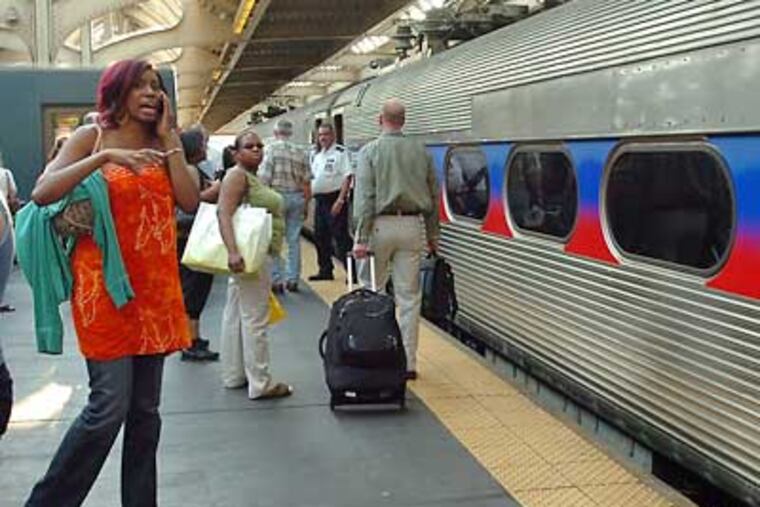SEPTA to offer some relief from cell-phone chatter
Tired of cell-phone squawkers on the train? Relief may be on the way.

Tired of cell-phone squawkers on the train? Relief may be on the way.
SEPTA will offer a "quiet car" on the R5-Lansdale/Doylestown line starting next week, with plans to follow suit on other rail lines in March, if passengers like the pilot program.
Starting Monday, cell-phone use will be prohibited on the first car of the morning and on evening rush-hour express trains on the R5 line. Passengers on the car will also be asked to use headsets with any electronic devices and to keep conversations quiet.
"A lot of people are irritated by other passengers using phones or talking too loudly," SEPTA spokesman Richard Maloney said.
Amtrak and several commuter rail operations, including the Maryland Transit Administration and the Altamont Commuter Express in California, have similar quiet car arrangements. SEPTA will be the largest transit agency with quiet cars.
A big question for riders will be: Who will enforce the rule?
"Amtrak has told us that most of the time, it's self-policing," said Kim Heinle, SEPTA's assistant general manager for customer service. "We're hopeful that customers will respond well, and we think they will."
Matthew Mitchell of the Delaware Valley Association of Rail Passengers said the greatest concern expressed by riders was about the potential for confrontations with cell-phone users. He said he was optimistic that wouldn't happen.
"Experience elsewhere has been that the passengers mostly sort these things out themselves, and those who are going to have conversations with a seatmate or make cell phone calls will know to sit in a different car," he said. "Rail commuters are by and large pretty quiet and respectful to start with, and it's not like the average peak-hour train is all that raucous."
Mitchell said the riders' group will work with SEPTA to gather feedback from passengers.
"I think they'll be fairly popular," Mitchell said of the quiet cars. "Anything you can do to improve the riding experience will make people's lives better."
The "QuietRide" pilot program will continue through March 13. At that time, depending on its reception, SEPTA officials will extend the concept to other rail lines, abandon the idea or continue with a revised pilot program, Heinle said.
Passengers can email their evaluations of the program to DVARP at mail@dvarp.org or use SEPTA's on-line response form at www.septa.org/inside/customer_service/cs_survey/service_info.html. Or they can call SEPTA customer service at 215-580-7800.